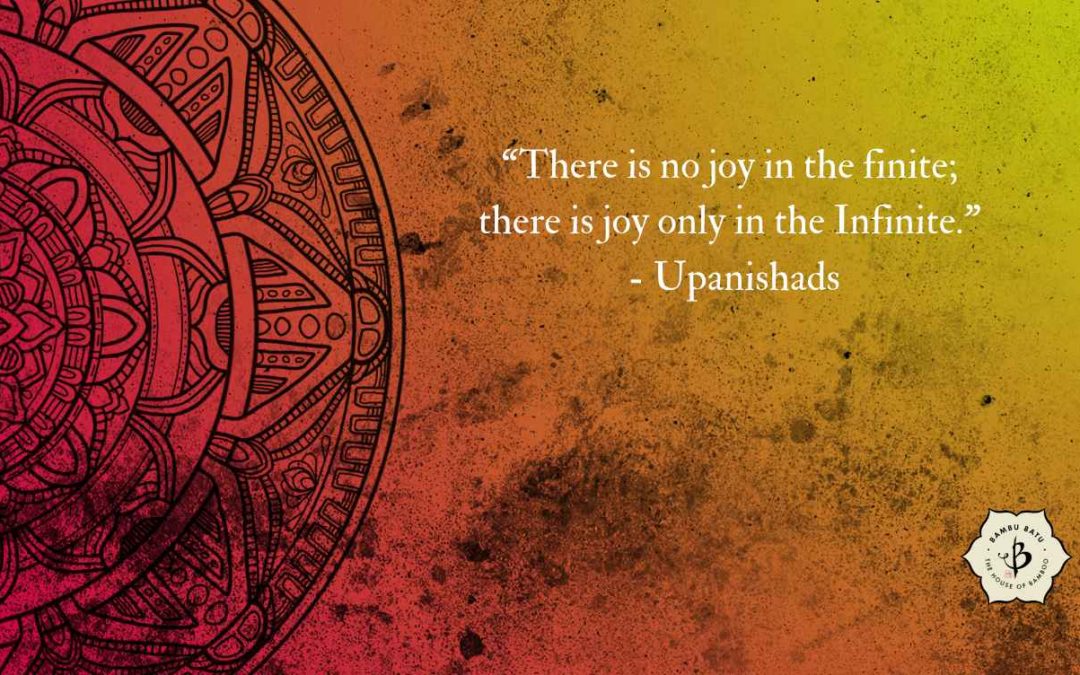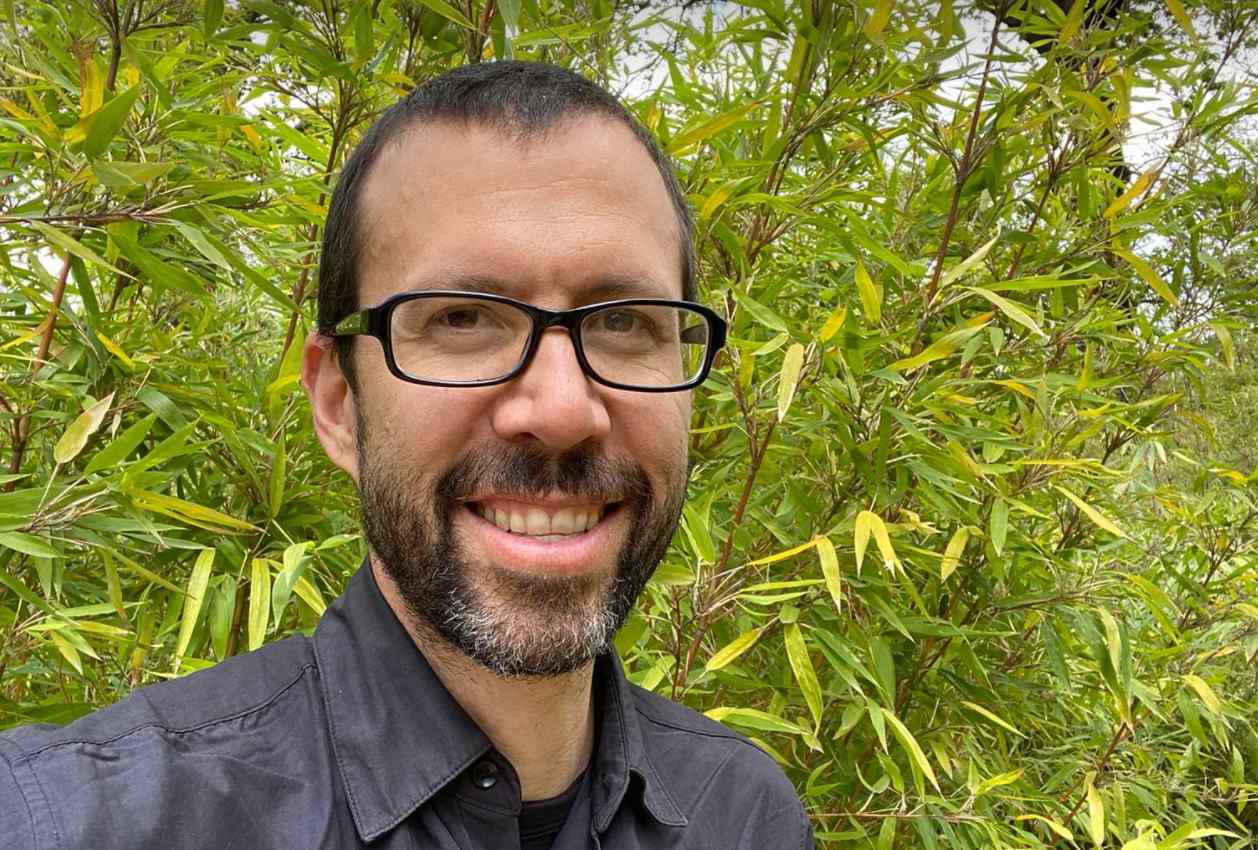No matter how many times you hear a pithy proverb from the Dalai Lama or come across a powerful passage from the Bhagavad Gita, certain pearls of wisdom never seem to lose their luster. And though they may strike us as common-sensical and undeniable, we find ourselves needing to revisit them regularly for renewal and affirmation.
The following anthology of Eastern proverbs includes precious wisdom from Buddhist and Hindu holy texts, as well as great spiritual leaders like Gandhi and the Dalai Lama. Whether you’re seeking solace in times of grief or just a bit of inspiration to advance your own practice, you’ll surely find a wealth of stirring aphorisms in the collection below.
NOTE: We first published this timeless collection in December 2020, and updated it most recently in April 2024.
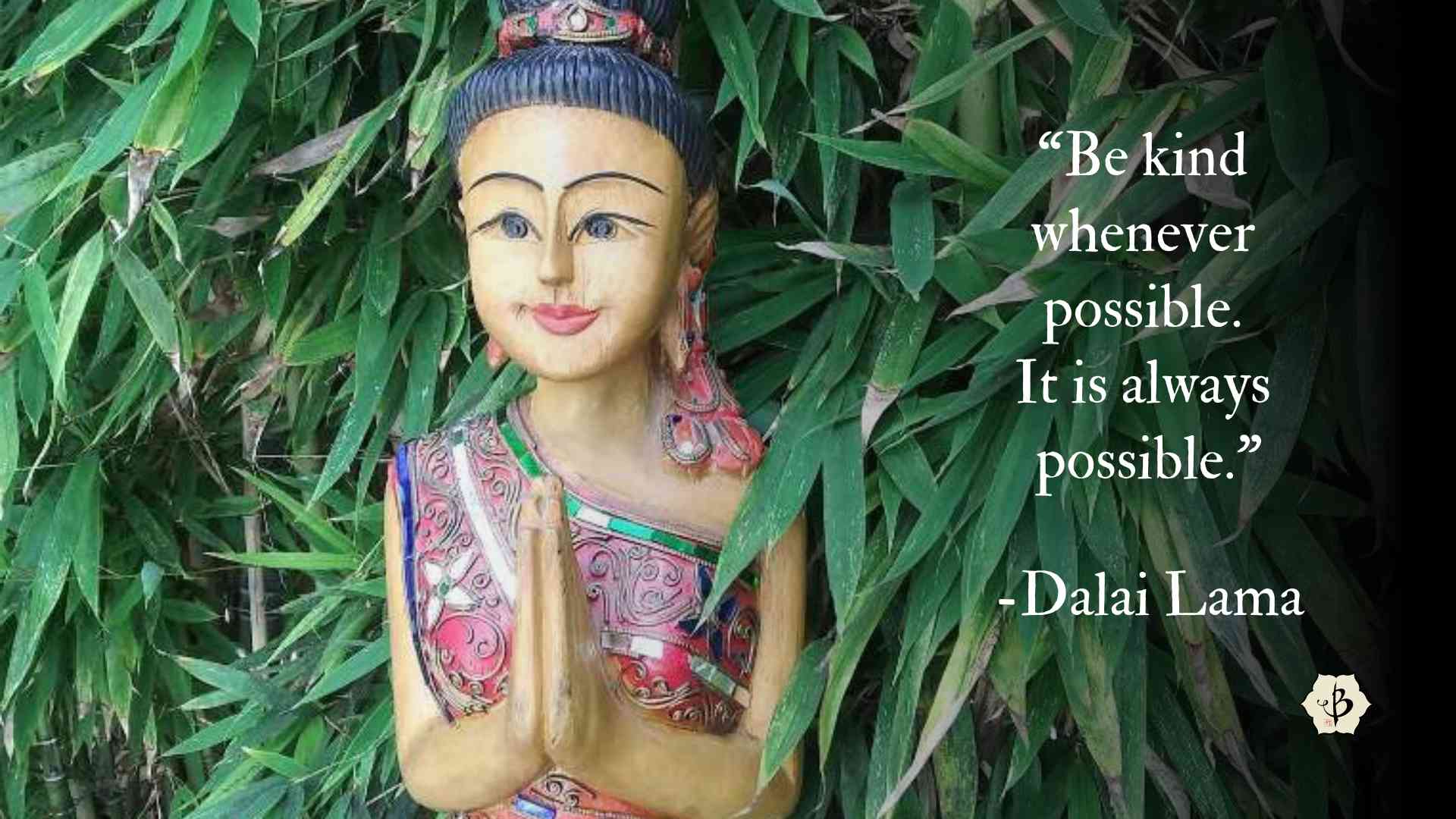
Enlightening Quotes from the Dalai Lama
His Holiness, Tenzin Gyatso, the 14th Dalai Lama, has been the spiritual leader of Tibetan Buddhism since 1940. Since the uprising of 1959, a protest against the Chinese occupation of Tibet, the Dalai Lama has lived in exile in northern India. He is the author of many popular books on Buddhism, as well as numerous academic essays and commentaries. Even well into his 80s, he still maintains a very full schedule of teaching and speaking, and continues to provide profound inspiration for devotees the world over. The following are short extracts from his books and lectures.
“Just one small positive thought in the morning can change your whole day.”
“In one moment of anger, you can undo eons of gifts and blessings.”
“The goal is not to be better than the other man, but better than your previous self.”
“It is the enemy who can truly teach us to practice the virtues of compassion and tolerance.”
“Give the ones you love wings to fly, roots to come back, and reasons to stay.”
“Be kind whenever possible. It is always possible.”
“People were created to be loved. Things were created to be used. The world is in chaos because things are being loved and people are being used.”
“The Great Vehicle path requires the vast motivation of a Bodhisattva, who takes on the burden of bringing about the welfare of all sentient beings.”
“There is no need for temples; no need for complicated philosophy. Our own brain, our own heart is our temple; the philosophy is kindness.”
“With the ever-growing impact of science on our lives, religion and spirituality have a greater role to play by reminding us of our humanity. There is no contradiction between the two.”
“Humanity is entirely responsible for being at the root of the problems arising from global warming. We need to rethink the way we live on earth in order to preserve life.”
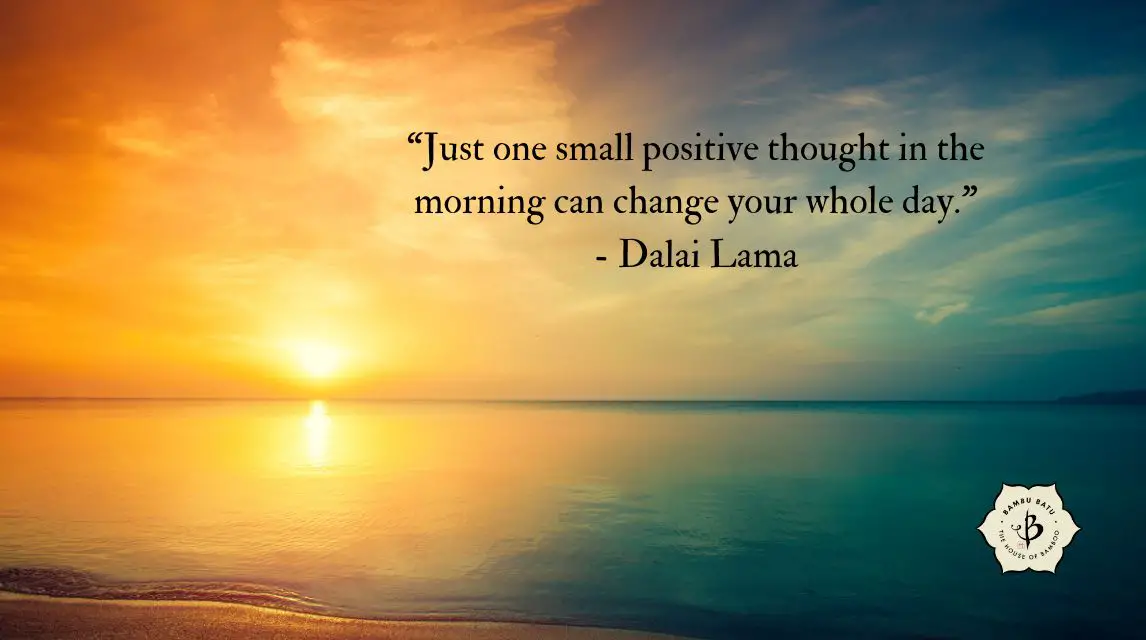
Powerful Buddhist Proverbs
Siddhartha Gotama, also known as the Buddha, lived in India sometime around the 6th century B.C.E. The core of his teaching revolves around the Four Noble Truths. Essentially, according to Buddha, desire is the source of all suffering, and detachment from desire is the surest path to liberation from suffering and illusion. Buddhist practitioners adhere to principles of compassion, tolerance, non-violence and mindfulness. In addition to the Dalai Lama, Thich Nhat Hanh, a Vietnamese monk, is one of the most well-known Buddhist teachers alive today. (UPDATE: He passed away in January 2022.)
“It is often said that the Buddha’s teaching is only a raft to help you cross the river, a finger pointing to the moon. Don’t mistake the finger for the moon. The raft is not the shore. If we cling to the raft, if we cling to the finger, we miss everything.” — Thich Nhat Hanh
“True religion has a universal quality. It does not find fault with other religions. Forgiveness, compassion, tolerance, brotherhood and the feeling of oneness are the signs of a true religion.” — Sri Chomney
“For things to reveal themselves to us, we need to be ready to abandon our views about them.” — Thich Nhat Hanh
“We have to walk in a way that we only print peace and serenity on the Earth. Walk as if you are kissing the Earth with your feet.” — Thich Nhat Hanh
“There is no way to happiness – happiness is the way.” — Thich Nhat Hanh
“You are the sky. Everything else – it’s just the weather.” ― Pema Chödrön
“Fear is a natural reaction to moving closer to the truth.” ― Pema Chodron

Attributed to the Buddha
“Do not dwell in the past, do not dream of the future, concentrate the mind on the present moment.”
“All that we are, is the result of what we have thought. The mind is everything. What we think, we become.”
“Holding on to anger is like grasping a hot coal with the intent of throwing it at someone else; you are the one who gets burned.”
“Even as a solid rock is unshaken by the wind, so are the wise unshaken by praise or blame.”
“Nothing can harm you as much as your own thoughts unguarded.”
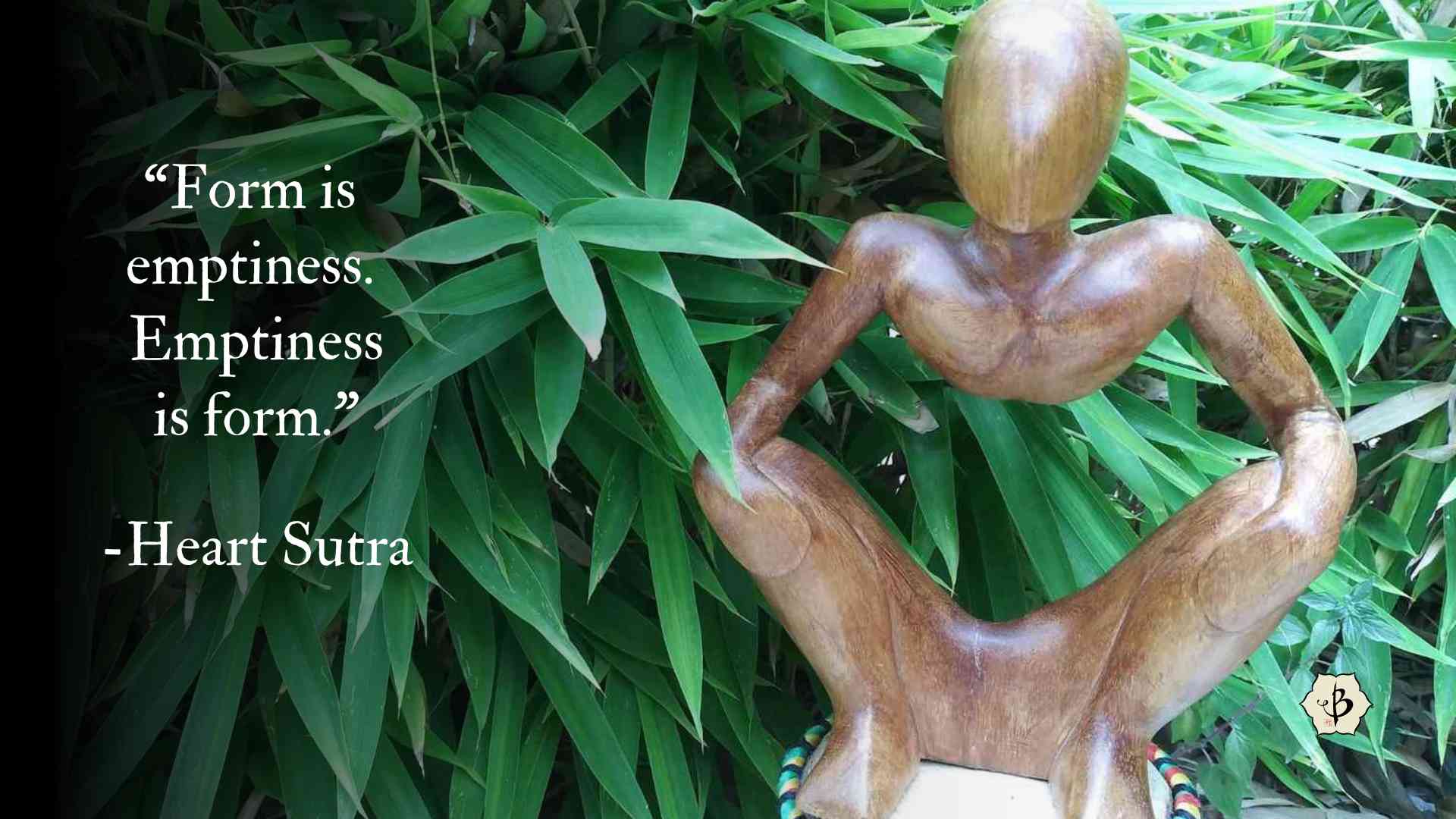
Buddhist Sutras, for the “Perfection of Wisdom”
“Thus shall you think of this fleeting world:
A star at dawn, a bubble in a stream,
A flash of lightning in a summer cloud,
A flickering lamp, a phantom, and a dream.” — Diamond Sutra
“Form is emptiness; emptiness is form.” — Heart Sutra
“To enter the room of the Tathagata is to have great compassion for all living beings. To wear the robe of the Tathagata is to be gentle and patient. To sit on the seat of the Tathagata is to contemplate the emptiness of all things. One should dwell in peace with all three and then, never becoming lazy or careless, teach this Dharma Flower Sutra everywhere to bodhisattvas and the four groups.” — Lotus Sutra
Buddhism and Beatniks
Appeals to Buddhism are not all that uncommon in secular American literature, especially from the mid-20th century. The Beatniks actually played a pivotal role in bringing Zen and Buddhism to the West, but with a healthy dose of irony and countercultural iconoclasm. Here are some samples from a few poets of that era.
“to me a mountain is a buddha. think of the patience, hundreds of thousands of years just sittin there bein perfectly perfectly silent and like praying for all living creatures in that silence and just waitin for us to stop all our frettin and foolin.” — Jack Kerouac
“Follow your inner moonlight, don’t hide the madness.” — Allen Ginsberg
The Four Great Vows (from Franny and Zooey, by J.D. Salinger)
However innumerable beings are, I vow to save them.
However inexhaustible the passions are, I vow to extinguish them.
However immeasurable the Dharma are, I vow to master them.
However incomparable the Buddha-truth is, I vow to attain it.
TARA (by Diane di Prima)
1
on the airplane she said
“I feel stretched”
where? I asked and she laid her hand
on her own crown chakra
2
this morning we walked to breakfast
birds were singing
“HOLY HOLY HOLY HOLY” she whispered
“that’s what they were saying
HO-WHEE HO-WHEE
WHOLE WHEAT
Well, anyway whole wheat
Is holy too”
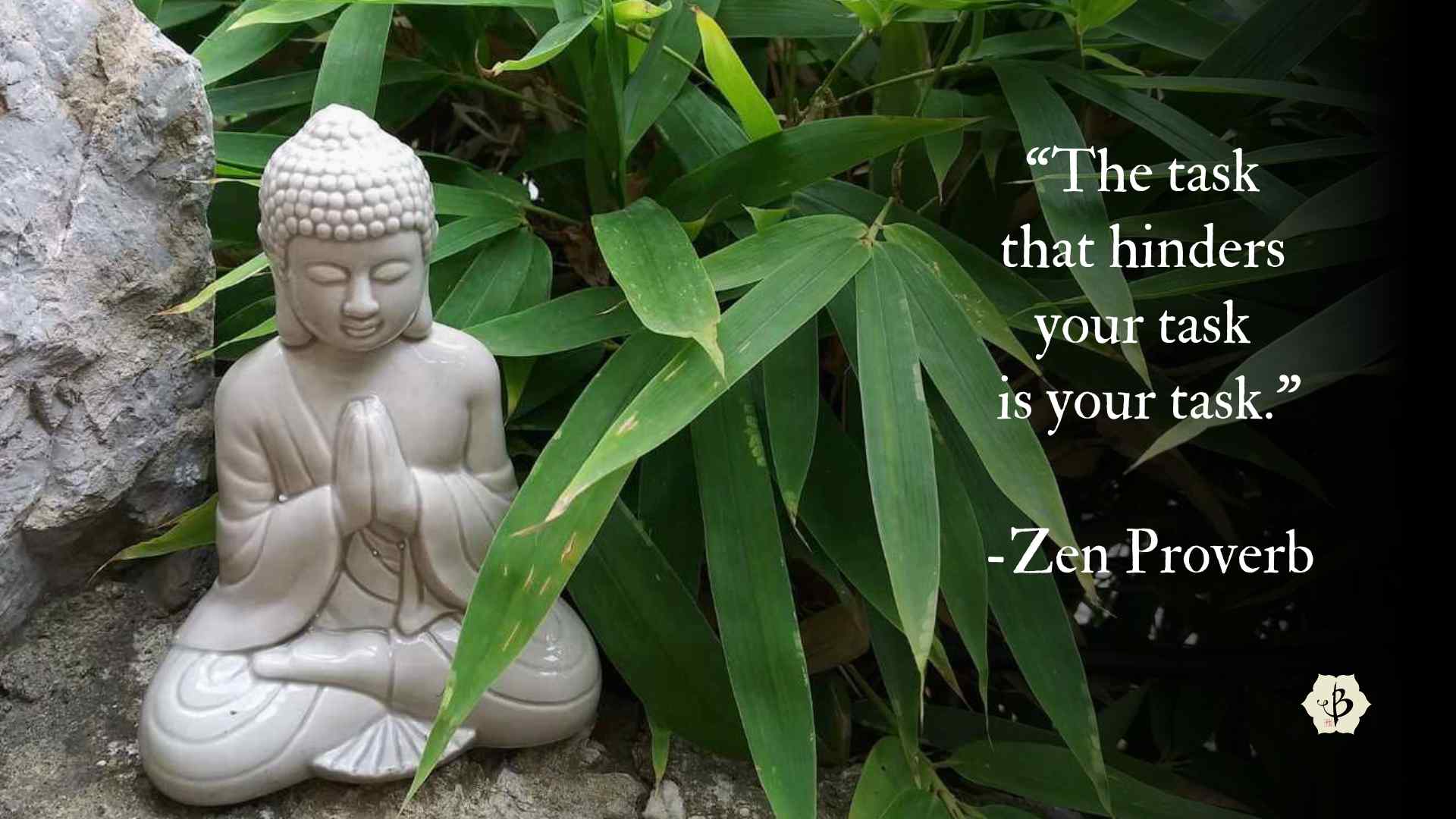
Eastern Wisdom Texts
Personal practice plays a greater role in Eastern religions than doctrinal texts, but the Upanishads and the Bhagavad Gita are crucial documents for Hinduism and Buddhism. The Upanishads are ancient Vedic texts, also called the Vedanta, which predate the Buddha and teach the major tenets of Hindu ontology and philosophy. The Bhagavad Gita is probably the most important or best-known section of the Mahabharata, the great epic of Indian mythology. The Tao Te Ching, a short collection of puzzling verses, forms the basis of the Taoist school of thought.
The Bhagavad Gita
“The spirit is beyond destruction. No one can bring an end to spirit which is everlasting.”
“If you want to see the Brave, look for those who can return Love for Hatred. If you want to see the Heroic, look for those who can Forgive.”
“When meditation is mastered,
The mind is unwavering like the
Flame of a lamp in a windless place.
In the still mind,
In the depths of meditation,
The Self reveals itself.
Beholding the Self
By means of the Self,
An aspirant knows the
Joy and peace of complete fulfillment.
Having attained that
Abiding joy beyond the senses,
Revealed in the stilled mind,
He never swerves from the eternal truth.”
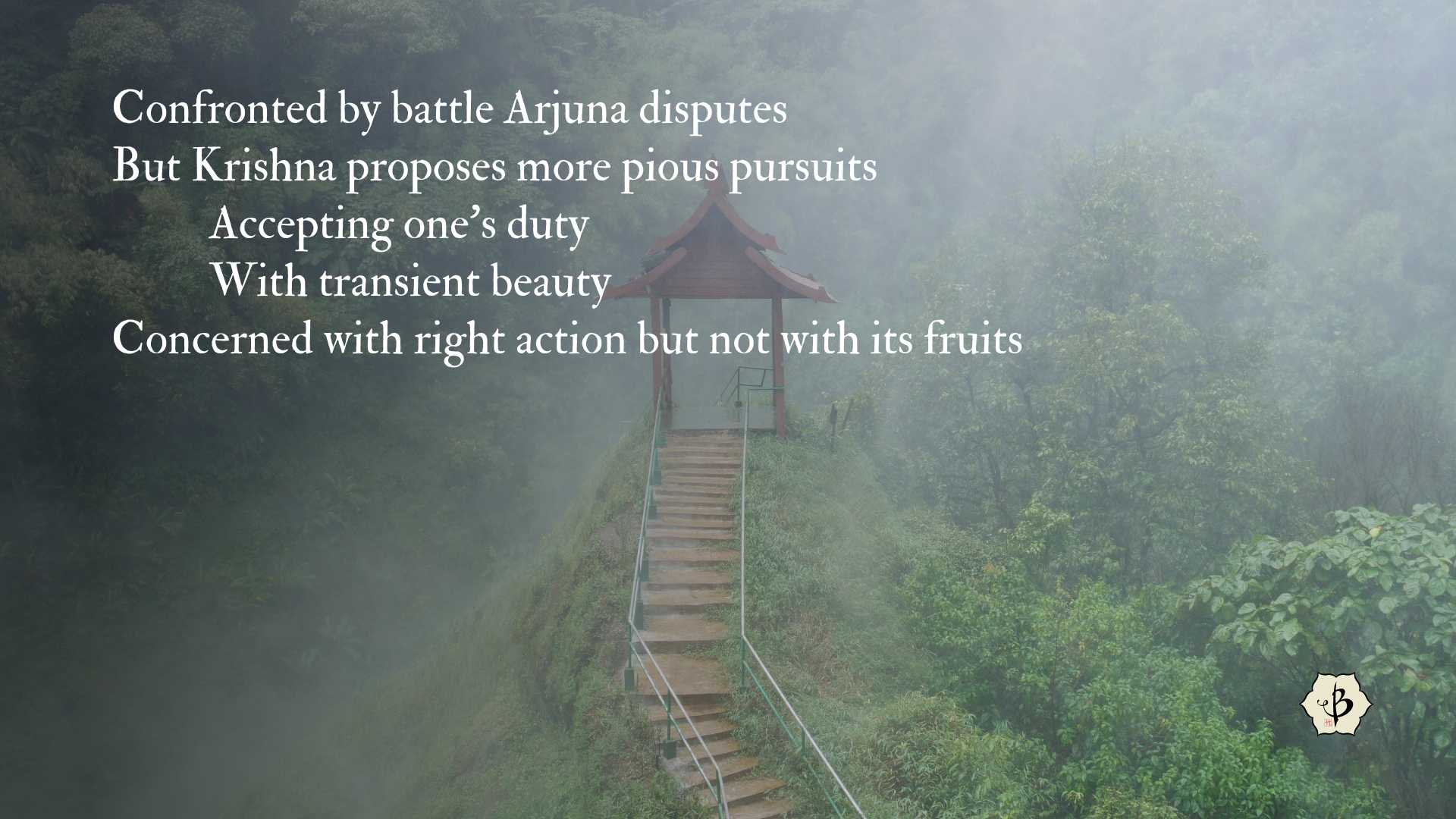
Tao Te Ching
“The Tao that can be expressed is not the eternal Tao; the name that can be defined is not the unchanging name.”
“The way you can go
isn’t the real way.
The name you can say
isn’t the real name.
Heaven and earth
begin in the unnamed:
name’s the mother
of the ten thousand things.”
“Knowing others is intelligence; knowing yourself is true wisdom.
Mastering others is strength; mastering yourself is true power.”
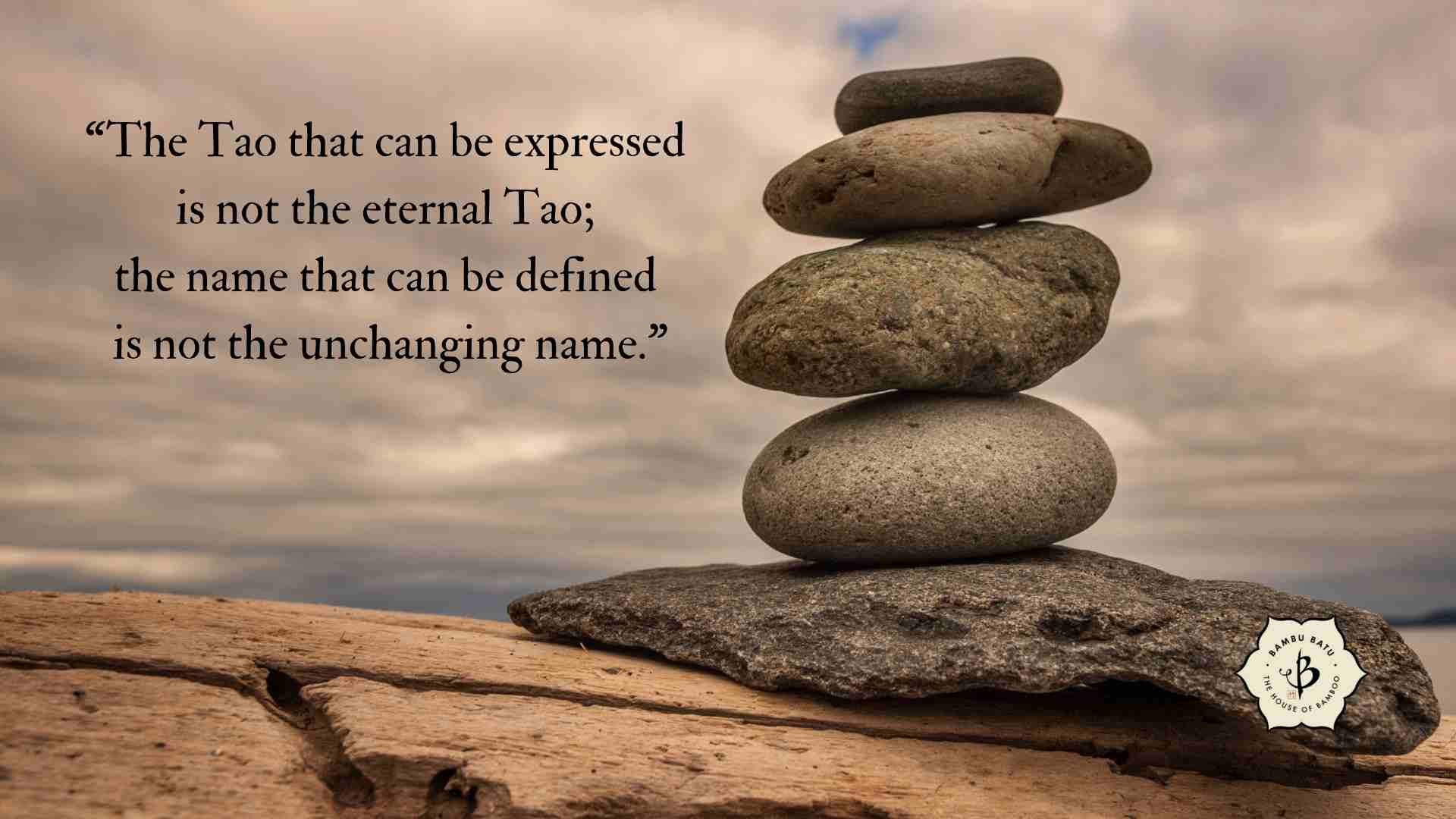
The Upanishads
“There is no joy in the finite; there is joy only in the Infinite.”
“He who sees all beings in his Self and his Self in all beings, he never suffers; because when he sees all creatures within his true Self, then jealousy, grief and hatred vanish.”
“Then he realized: I indeed am this creation, for I have poured it forth from myself. And that way he became this creation. And verily, he who knows this becomes in this creation, a creator.”
True Words and Wisdom from Mahatma Gandhi
Gandhi was an Indian lawyer and independence activist whose methods of non-violence inspired Martin Luther King, the Civil Rights Movement, and activists around the world. A devout follower of the Bhagavad Gita, Gandhi’s teachings of passive resistance have popularized the Eastern notion of Ahisma and contributed enormously to modern political movements.
Some of the most popular quotations from Gandhi have actually been misattributed. (e.g., “An eye for an eye leaves the whole world blind”; “First they ignore you, then they laugh at you, then you win”; “We must be the change we wish to see in the world.”) The following words come genuinely and verifiably from the mouth or the pen of Mr. Gandhi.
“Truth alone will endure, all the rest will be swept away before the tide of time.”
“Earth provides enough to satisfy every man’s need but not for every man’s greed.”
“You must not lose faith in humanity. Humanity is an ocean; if a few drops of the ocean are dirty, the ocean does not become dirty.”
“A good person will resist an evil system with his whole soul. Disobedience of the laws of an evil state is therefore a duty.”
“For me the different religions are beautiful flowers from the same garden, or they are branches of the same majestic tree. Therefore they are equally true, though being received and interpreted through human instruments equally imperfect.”
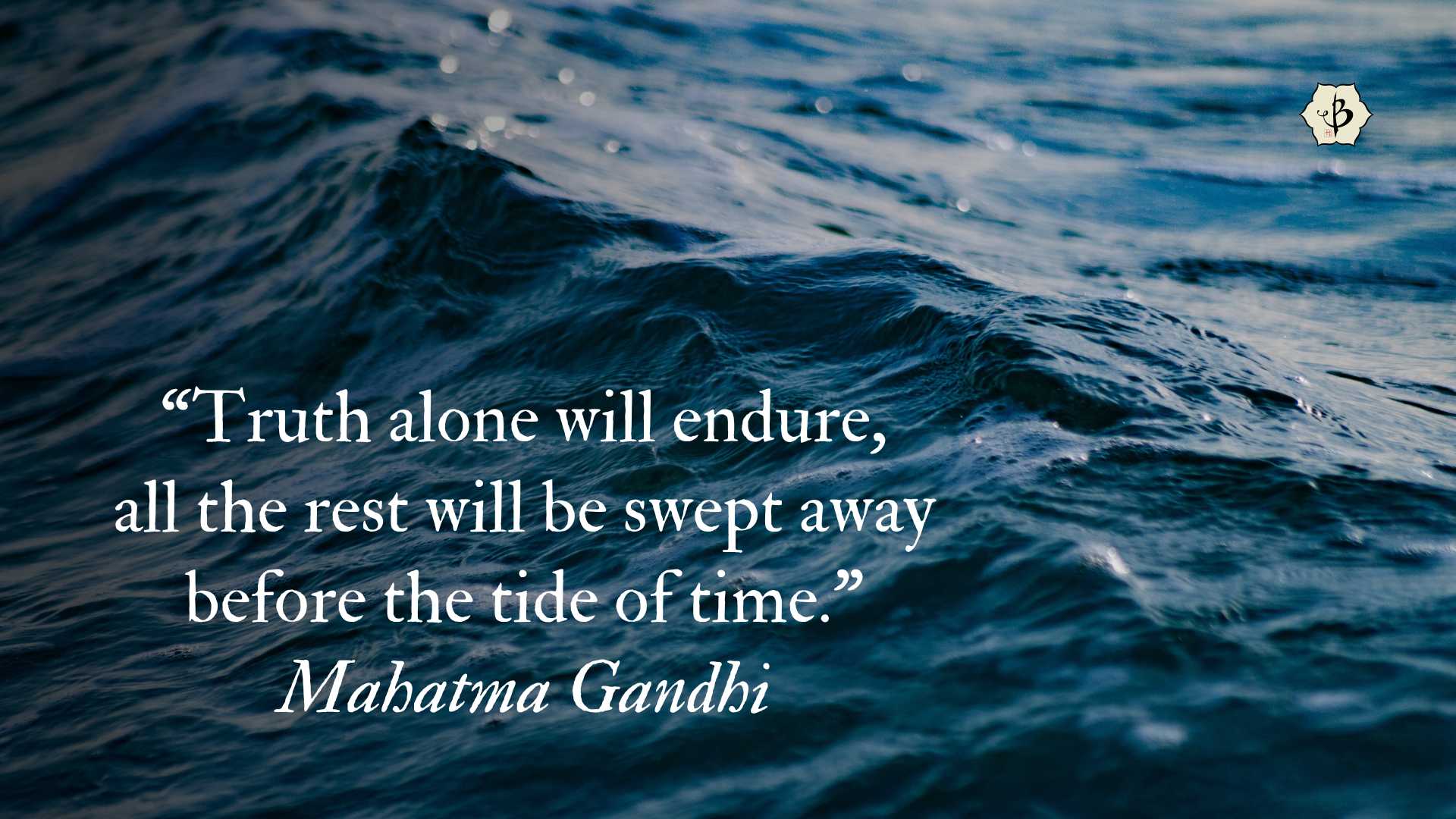
Western Wisdom with Eastern Flavor
Eastern philosophy suggests a connection with distant lands like China, India, and Japan. But Eastern spirituality is more of a state of mind than a geographical position. From early Gnostic Christianity to 20th-century psychology to 21st-century self-help books, strands of Eastern thought are apparent throughout the tapestry of Western civilization.
“If you bring forth what is within you, what you bring forth will save you. If you do not bring forth what is within you, what you do not bring forth will destroy you.” — Gnostic Gospel of Thomas
“Muddy water is best cleared by leaving it alone.” — Alan Watts
“Until he extends his circle of compassion to include all living things, man will not himself find peace.” — Albert Schweitzer
“Awareness is the greatest agent for change.” — Eckhart Tolle
“You can take away a man’s gods, but only to give him others in return.” — Carl Jung
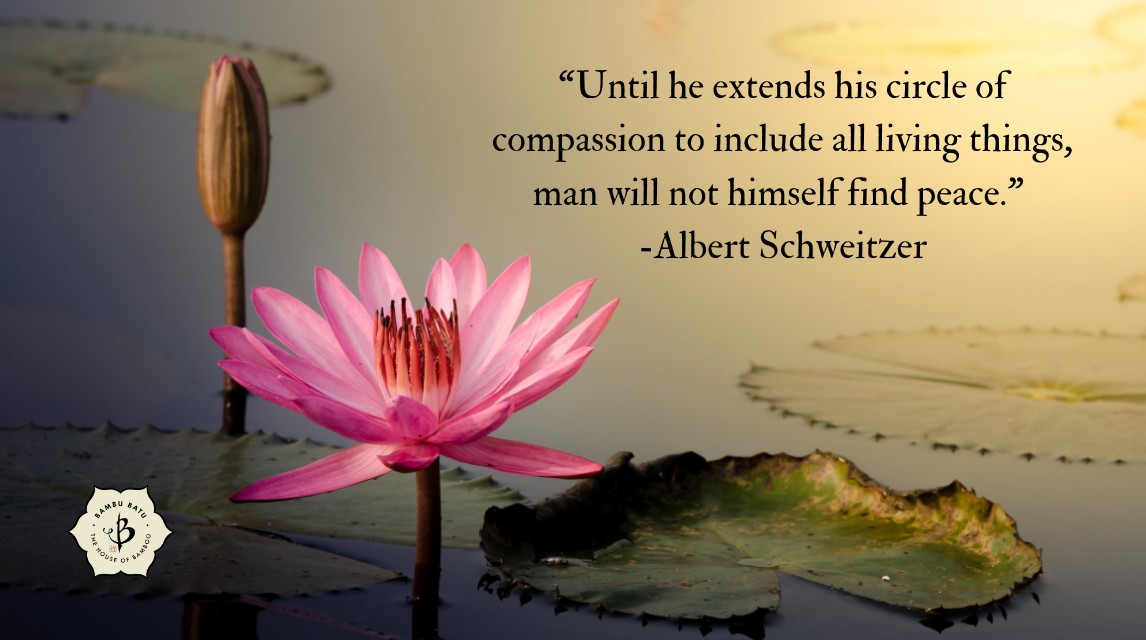
Related reading
For more uplifting quotations, aphorisms and pearls of Eastern wisdom, check out some of these thought-provoking articles.

